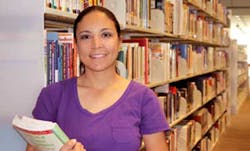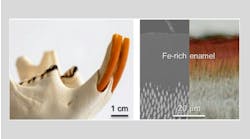The American Dental Associationhas initiated a Community Dental Health Coordinator (CDHC) program at Central New Mexico Community College for the upcoming fall semester. For its inaugural year the program is accepting Certified Dental AssistantsTM (CDA®) and Registered Dental Hygienists.
Tija Hunter, CDA, EFDA, director of the Dental Careers Institute, and an independent consultant specializing in assistant training, team building, and office organization, believes that the new Community Dental Health Coordinator program is a very good development.
“There are several underserved communities that could truly benefit from having a CDHC to help navigate the system,” Tija said. “The biggest benefit will be to bring educational events to these same areas. That's one of the biggest problems today, the lack of oral health education. Anything to educate the public and make them aware of the dangers of poor oral hygiene is a huge plus.”
“This is truly exciting,” said ADA President Dr. Charles Norman. “CDHCs are an integral part of a complex set of solutions needed to address the nation’s dental health crisis.”
CDHCs play a vital role in improving access to dental care in underserved communities by providing dental health education and basic preventive services, and by helping patients navigate the public health system to receive care from dentists. They help people bridge such barriers as poverty, geography, language, culture, and a lack of understanding of oral hygiene.
“I would absolutely encourage Certified Dental Assistants to pursue this program,” Tija said. “I work in the state of Missouri, one of the most notorious areas for poor dental health. We need people in the areas most underserved. And I see more programs like this developing in the future. As the CDHCs go out into this world and make a difference, I think more programs will open up.”
CDHC students will learn interviewing skills, dental health teaching and learning skills, screening and classification, as well as palliative care skills before entering internships with dentists in New Mexico communities.
“We are proud that New Mexico was the first state to have the CDHC established in law, and excited to be the first to roll out a permanent educational program,” said Mark Moores, New Mexico Dental Association Executive Director. “We look forward to the positive impact that the CDHC will have on the oral health of New Mexicans.”
The ADA pilot has graduated 34 CDHCs currently practicing in eight states. Several CDHCs have taken visiting assignments to demonstrate the value of this innovative dental worker for government and public health officials in additional states.
A notable example is CDHC Lori Wood, who worked at the Esperanza Health Clinic in Silver City, N.M., last year. Ms. Wood’s New Mexico “sabbatical” allowed officials from Central New Mexico and other colleges to experience not only the CDHC’s value to the community, but also how the position provides career opportunities in health care.
Classes begin Aug. 24. For more information, contact the college’s Department of Health Wellness and Public Safety at 505-224-4111, or visit CNM.edu.
CDA® is a registered certification mark of the Dental Assisting National Board, Inc. This publication and related products are not sponsored by, affiliated with, or endorsed by DANB.
Meg Kaiser helps coordinate the e-newsletters Dental Assisting Digest, The Dentist-Lab Connection, and DE's Expert Tips and Tricks, and welcomes articles for the Practice Management, Dental Assisting, and Laboratory sections of DentistryIQ.com. Follow her on Twitter @mlkaiser.








